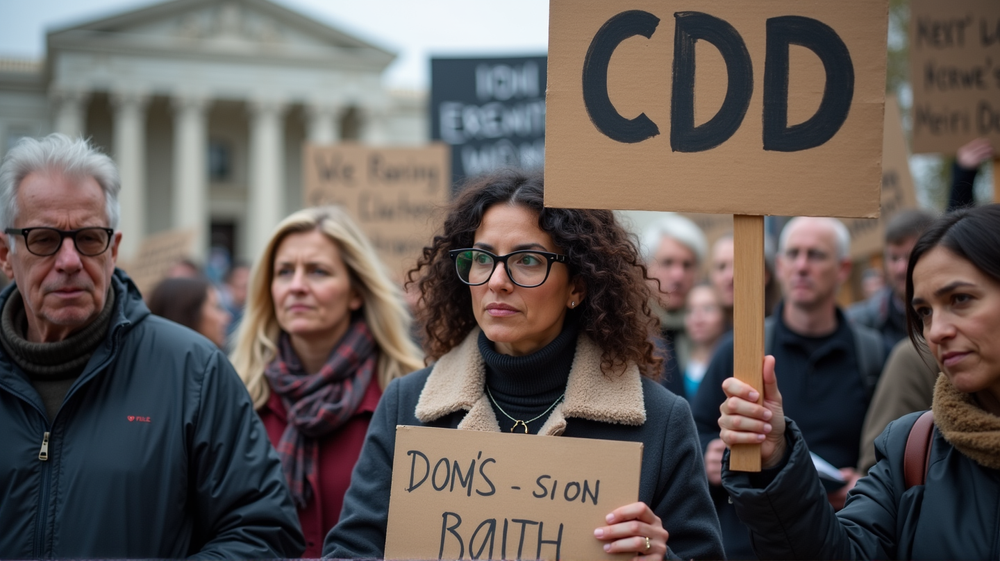In an unexpected turn of events, the Trump administration’s audacious move to curtail local health funding has hit a formidable wall, as a federal court issued a temporary injunction against the proposed cuts. This significant ruling comes amidst intensifying scrutiny and outcry over the plan, setting the stage for a broader battle over public health policy.
A Legal Lifeline Amid Controversy
U.S. District Judge Christopher Cooper in Washington, D.C., has provided a crucial legal lifeline to Harris County, Texas, and three major cities: Columbus, Ohio; Nashville, Tennessee; and Kansas City, Missouri. These key municipalities, embroiled in a fierce legal tussle, have momentarily secured funding crucial for public health services, including efforts against escalating infectious diseases and chronic illnesses.
Their legal move illuminated the far-reaching implications these budgetary cuts could impose on public health infrastructure. This case has spotlighted how deeply entrenched healthcare financing impacts community wellness, particularly during times when local health departments are grappling with new infectious threats and chronic health challenges. According to WDIO.com, this case symbolizes the larger conflict over health funding and resource allocation between state and federal authorities.
A Clash of Health Priorities
Judge Cooper’s injunction underscored the importance of reinstating funds, emphasizing their vital role in sustaining programs initiated during the COVID-19 pandemic. These funds were a lifeline for efforts such as wastewater disease surveillance, health worker programs, and vaccination call centers. Supporters argue these programs are pillars of preparedness against burgeoning public health threats.
However, the federal government persists in its argument that post-pandemic priorities necessitate the redirection of funds from these temporary measures. The administration’s legal team asserts the cessation of related programs is justified, now that the pressing urgency of the pandemic has waned. This stark divergence in viewpoint further fuels an already poignant debate over state versus federal control in public healthcare paradigms.
Community Resistance and Future Implications
Despite the court’s decision to limit funding reinstatement strictly to the contesting municipalities, the ruling provides hope for local governments nationwide. The case presents communal resistance as a pivotal factor in battling what many see as the undermining of essential public health resources.
As legal battles unfold, communities brace for potential ramifications on their local healthcare landscapes. Municipal authorities express steadfast commitment to retaining their health programs, emphasizing the profound impact even minor funding cuts can have. For Kansas City and others, every dollar represents a step toward more robust lab capabilities and quicker testing results—a crucial need underscored by years of preparation and dedication.
Navigating a Shifting Healthcare Landscape
As the legal voyage continues, local governments navigate a shifting healthcare landscape, buoyed by community support and robust legal representation. Questions linger regarding the long-term effects such cases may have on public health policies and federal-state relations. In these uncertain times, the determination of these municipalities serves as a testament to the enduring spirit of community advocacy in shaping health futures.
For now, the blocking of President Trump’s proposed funding cuts is more than just a legal victory—it’s a compelling reflection of the ongoing struggle for balanced, accessible public health funding within the United States. Communities remain at the forefront, echoing a call for fairness and sustainability in healthcare resource distribution, as they await final rulings with cautious optimism.












